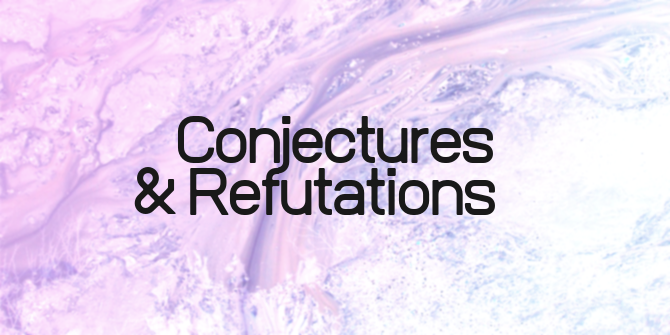Event Categories: BSPS Choice Group Conjectures and Refutations Popper Seminar Sigma Club

- This event has passed.
Adrian Currie (University of Exeter): ‘Loss, Erasure & the Avalonian Ediacaran’
11 May 2023, 12:00 pm – 1:30 pm
Event Navigation

Abstract: Complex metazoan life arose in the Ediacaran, the earliest signs being in the Avalonian assemblages: frond-like organisms of unestablished taxonomic affinity, feeding strategy and ecological role. What is well-established is the Avalonian Ediacaran’s sessility: this early example of a metazoan community existed before mobility. I’ll use the Avalonian biota to build a new framework for understanding the epistemology of sciences concerned with the deep past.
Most previous analyses of historical science focus on what I’ll call erasure: how ‘records’ of the past degrade as time goes by, and how this undermines the capacities of scientists to reconstruct the past. I’ll argue that in addition to erasure, we should focus on loss: in many ways the past is not like the present, and this challenges our capacity to understand it. As we’ll see, the lack of mobile animal life had profound consequences for the taphonomic and ecological context of Avalon; consequences making the Avalonian world fundamentally different to our own. We might say we live in separate worlds, and the differences between our worlds constitute a major epistemic challenge beyond the incompleteness of Avalonian ‘records’. I will lay out a framework that captures both erasure and loss, and put it to work by articulating a set of strategies paleontologists adopt in light of past worlds. I’ll also explore how the lost world framework raises new perspectives regarding the value and nature of historical knowledge.
Adrian Currie is a Senior Lecturer at the University of Exeter’s department of Sociology, Philosophy and Anthropology. He is primarily interested in how scientists successfully generate knowledge in tricky circumstances: where evidence is thin on the ground, targets are highly complex and obstinate, and our knowledge is limited. This has led him to examine the historical sciences – geology, palaeontology and archaeology – and to argue that the messy, opportunistic (‘methodologically omnivorous’) and disunified nature of these sciences often underwrites their success. His interest in knowledge-production has also led him to think about the natures of, and relationships between, scientific tools such as experiments, models and observations, as well as in comparative methods in biology. He also has an interest in how we organize scientific communities, particularly regarding scientific creativity. Adrian grew up in Christchurch, New Zealand and has studied and taught at Victoria University of Wellington, Australian National University, the University of Sydney, the University of Calgary and Cambridge University before coming to Exeter.

